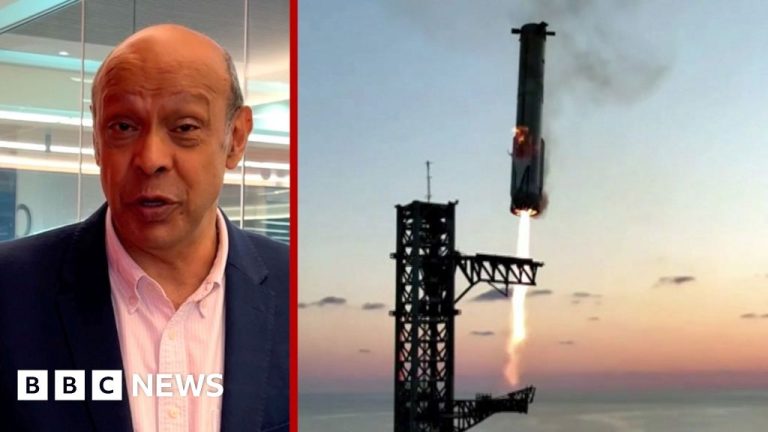Elon Musk's SpaceX has successfully completed a world-first test, returning part of its spacecraft to its launch pad.
That means the company's plan to develop a fully reusable, rapidly deployable rocket is moving that much closer.
BBC science correspondent Pallab Ghosh explores why this “incredibly difficult” operation poses a major challenge for future exploration and what environmental concerns people may have about it.
The Federal Aviation Administration (FAA), the US government body that approves all flights, previously said there would be no launch until November, after reviewing the company's permits.
Since last month, the agency and Elon Musk have feuded publicly after the FAA said it was seeking to fine his company, SpaceX, $633,000 for allegedly failing to comply with its licensing conditions and for not having obtained a permit for previous flights.
Before issuing a license, the FAA considers the impact of the flight, including the effect on the environment.
In response to the fine, Musk threatened to sue the agency and SpaceX published a public blog post, attacking “false reports” that part of the rocket was polluting the environment.
Filmed and edited by Béatrice Guzzardi.
Produced by Ian Casey.

